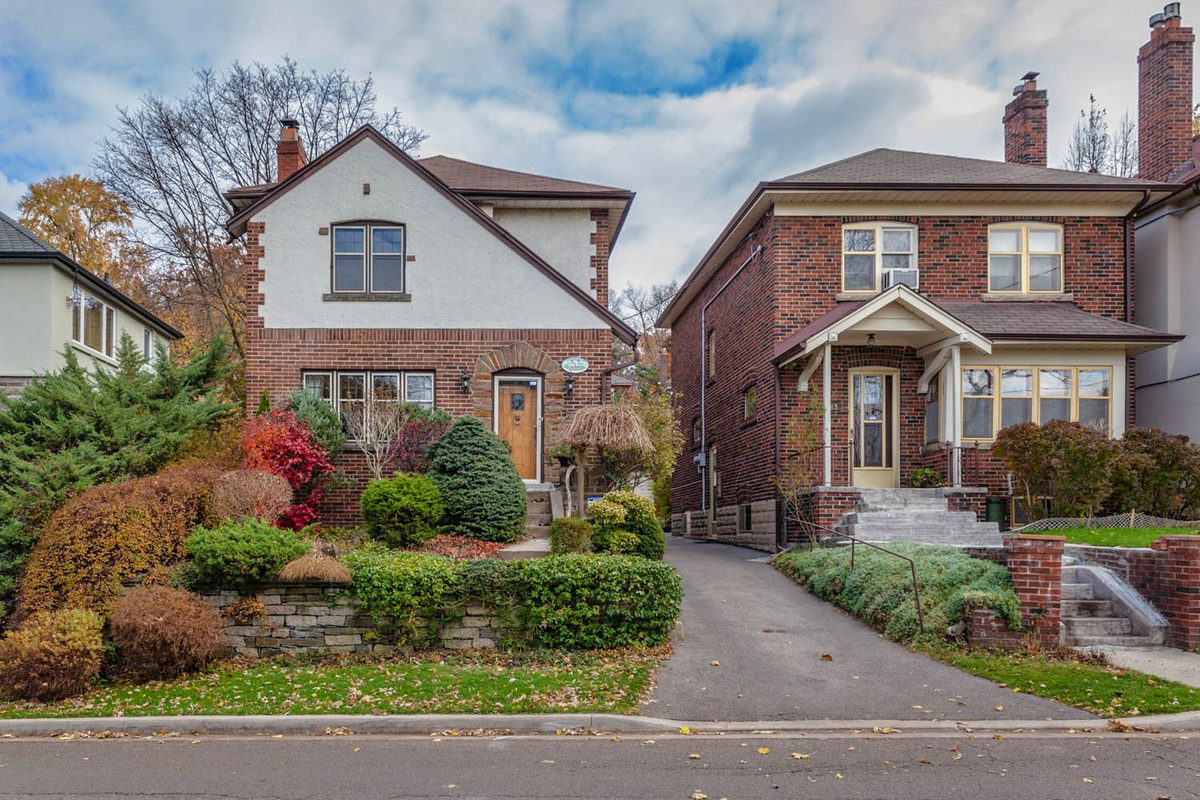A detached home in Toronto or the GTA this days is easily over $1 million, and when the asset has such a huge price tag, the closing costs associated with buying can creep up on you. This can result in thousands of dollars of fees you completely forgot about.
Richard Silver, Senior Vice President – Sales at Sotheby’s International Realty Canada, recommends that, “a buyer should have on hand about 5% of the purchase price—4% for taxes and roughly 1% for lawyer fees.”
While tax and legal fees may be the largest costs to closing, they’re not the only ones. Other costs include home appraisal, a land survey, home inspection fees, mortgage default insurance.
Taxes (4%-15% of the purchase price)
Possibly the largest closing fee that the buyer is responsible for is the Land Transfer Tax. This is a provincial and/or municipal tax that is a percentage of the home’s purchase price, and usually only affects resale homes—though having to pay Land Transfer Tax on a new construction is not out of the question.The exact percentage of the tax varies from province to province and municipality to municipality.
Toronto buyers have to pay both the Ontario (provincial) land transfer tax and Toronto (municipal) land transfer tax.
As Richard says:
In the City of Toronto the [Land Transfer Tax] amounts to 4%—2% for the province and 2% for the city. If you are a foreign buyer, it jumps to 15%.
At the moment, the system works in tiers marginally and each portion of your home’s value is taxed at a different percentage, but this system averages out to approximately 4% in land transfer taxes.
Ontario Land Transfer Tax Rates
| Purchase price of home | Land title transfer fee | First-time homebuyer rebate |
|---|---|---|
| Up to and including $55,000 | 0.5% | Full tax rebate |
| $55,000.01 to $250,000.00 | 1.0% | Full tax rebate |
| $250,000.01 to $368,333 | 1.5% | Full tax rebate |
| $368,334 to $400,000.00 | 1.5% | $4,000 tax rebate |
| $400,000.00 to $2,000,000.00 | 2.0% | $4,000 tax rebate |
| Over $2,000,000.00 | 2.5% | $4,000 tax rebate |
Toronto Land Transfer Tax Rates
| Purchase price of home | Land title transfer fee | First-time homebuyer rebate |
|---|---|---|
| Up to and including $55,000 | 0.5% | Full tax rebate |
| $55,000.01 to $250,000.00 | 1.0% | Full tax rebate |
| $250,000.01 up to and including $400,000.00 | 1.5% | Full tax rebate |
| $400,000.01 up to and including $2,000,000.00 | 2.0% | $4,475 maximum tax rebate |
| Over $2,000,000 | 2.5% | $4,475 maximum tax rebate |
You can also use our calculator to figure out how much are you about to pay.
Land Transfer Tax is expensive, but first-time homebuyers can find solace in various rebates. First-time homebuyers get a full tax refund for the first $368,333 on the taxable purchase price from the province and on the first $400,000 from the city. The next $400,000 to $2 million can receive a maximum tax rebate of $4,000 from the province and $4,475 from the city. And lastly, the taxable amount over $2 million can receive up to a $4,000 tax rebate from the province and a up to another $4,475 from the city.
Who is eligible for Ontario/Toronto land transfer tax refund?
- first-time home buyer
- must be a Canadian citizen or a permanent resident of Canada, 18 years or older
- must occupy the home within 9 months of buying
- cannot have owned a home anywhere in the world
- their spouse could be a previous homeowner but cannot have owned a house while being married to the applicant
- in case of newly constructed homes, they must be eligible for home warranty
- must apply for the rebate within 18 months of buying
The tax rebate application should include:
- a completed Ontario Land Transfer Tax Refund Affidavit for First-Time Purchasers of Eligible Homes
- a copy of the registered land transfer deed
- a copy of the agreement of purchase and sale
- a copy of a document proving residence (driver’s licence, phone bills..)
You can find more information about tax rebates and different scenarios here. But taxes are always changing depending on both the local and the provincial governments, so it’s advised to ask your lawyer or notary for the most recent calculations for your region to budget properly.
Another tax to keep in mind is HST. Though relatively minor, many services, such as realtors and lawyers, required during the closing process charge a standard 13% sales tax. And a 13% sales tax is also required in the purchase of a new home.
Lawyers and Realtors ($500-1,000)
Legal fees can vary between $500-$1,000 depending on the purchase price of the home and the lawyer. Some lawyers, similar to the Land Transfer Tax, also charge based on a tiered system.
This fee covers:
- title search
- title insurance
- managing the paperwork in obtaining a mortgage
- verifying the paperwork of the seller’s lawyer.
A lawyer is an important expense because they help you avoid trouble and are a preventative measure.
Additionally, while a buyer may not always hire a realtor, they still pay for one, which can amount to 3%-7% of the closing costs. Silver says:
The buyer does, in essence, pay one half of the [realtor’s] commission. But it flows through to the seller through inclusion in the asking price.
Home appraisal ($300-$500)
A home appraiser is often needed to provide a professional opinion about the value of the property being purchased and is required by the lender to see if the purchase price is fair. The lender needs this information to determine whether to provide the buyer with a mortgage. An appraiser usually costs $300-$500 but is something the lender often covers. The lender, in the end, provides a percentage of what the appraiser determines is a fair market price.
Home inspection ($500)
A home inspector is similar to an appraiser but evaluates things like the home’s structure and system to see if there are any issues before you purchase it. Although not mandatory, it’s common for purchase offers to be firm upon a positive home inspection report. Without a home inspection, you could discover poor water quality due to bleeding pipes, bad roofing, or poor foundation when it’s too late.
Home inspection costs depend on the size of the house, and for the typical suburban home, it can be around $500. Some buyers try to skip out on this cost, but Silver warns to never skip on an inspection:
If you [skip the home inspection] then you may miss out on things that need to be fixed and that could be fixed by the seller in the negotiation. Also, because no house is perfect, it gives you a schedule for upcoming expenses.
Land survey ($1,000-$2,000)
Lastly, a land survey is something to keep in mind. Between the buyer and seller, this cost may be split or given to one party depending on how the purchase agreement plays out. However, you only need a land survey if the seller cannot produce an up-to-date survey, and title insurance can replace the need for a land survey. If you do plan to get one, it costs $1,000-$2,000 depending on the size of the property. Similar to the home appraisal, it’s required by the lender.
Mortgage default insurance (0.6%-6.5% of the amount you borrow)
When buying a home, a 20% downpayment is ideal, but if you’ve decided to go less than 20% you’ll have to buy mortgage default insurance which adds another expense to your purchase. Mortgage default insurance is there to protect the lender from high-ratio mortgages (i.e., less than a 20% downpayment) in case you can no longer make payments.
The insurance costs between 0.6% and 6.5% of the amount you borrow and is payable upon closing or added to your monthly mortgage payments. If you decide to add it to your monthly mortgage payments, know that there will be interest. Where your insurance falls between that 0.6%-to-6.5% range depends on how much of a down payment you’ve made.
For example, on a $500,000 mortgage with a 10% down payment ($50,000), a $450,000 mortgage is required. And a 4% insurance premium would result in an added expense of $18,000.
These are only the major closing costs for a buyer, but remember that moving into a new home, especially if it’s your first home, results in additional costs like moving and hydro. Make sure to plan out a budget for all these things and to not only focus on that massive purchase price. You don’t want to be in for a surprise. Silver warns:
Moving day can be one of the worst days of your life…Do not underestimate it and get all the help you can. Remember the adage: You get what you pay for.
AZ00KV







